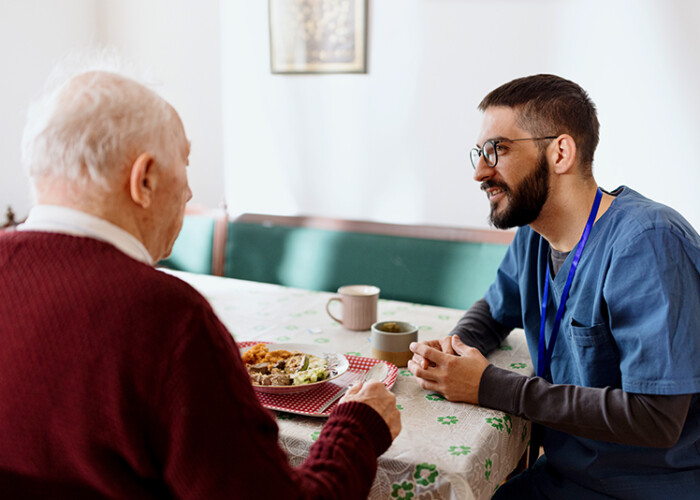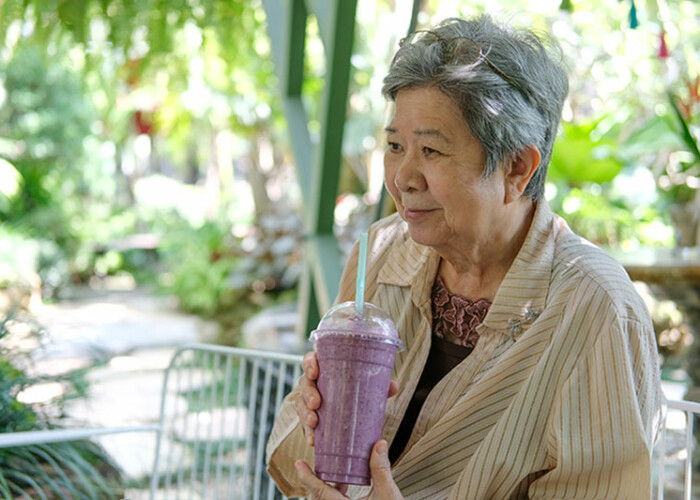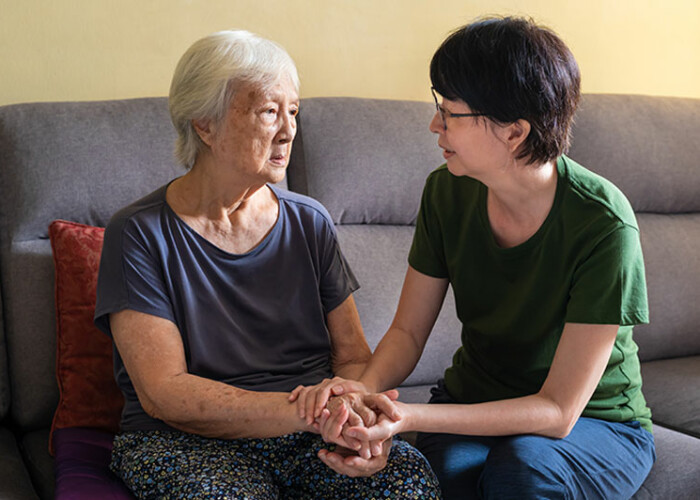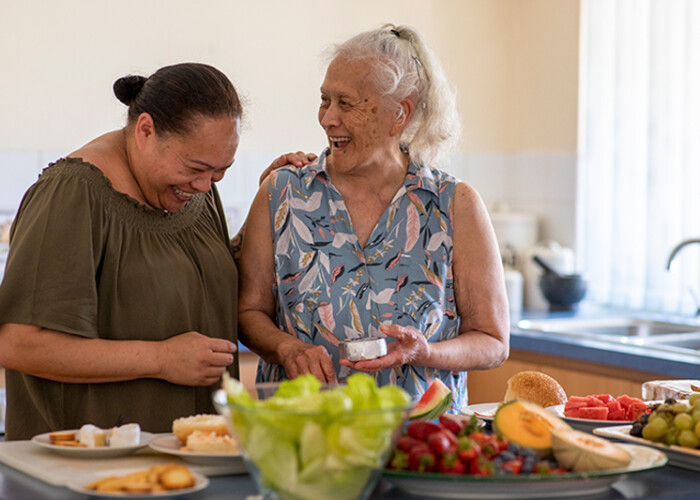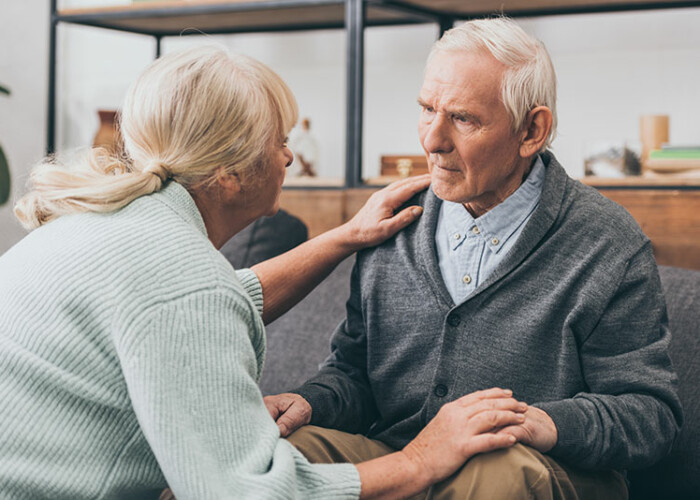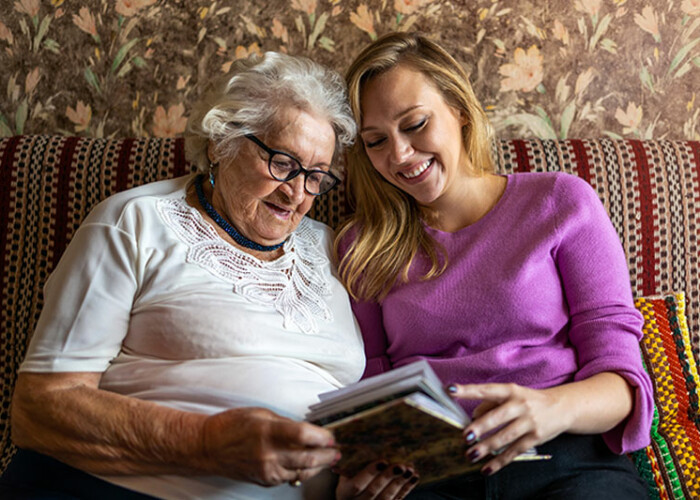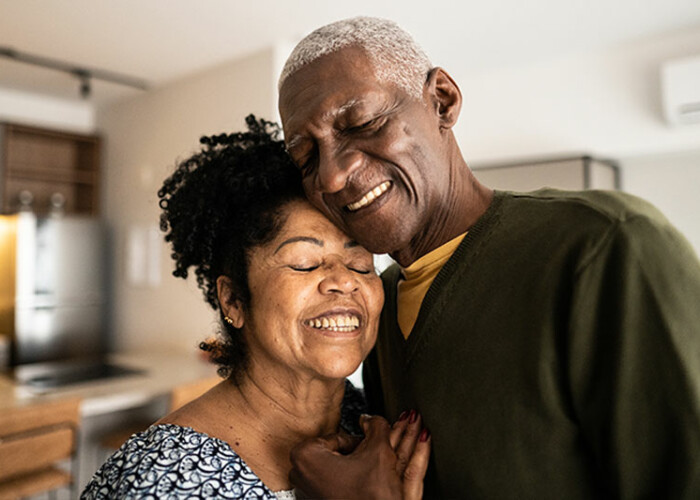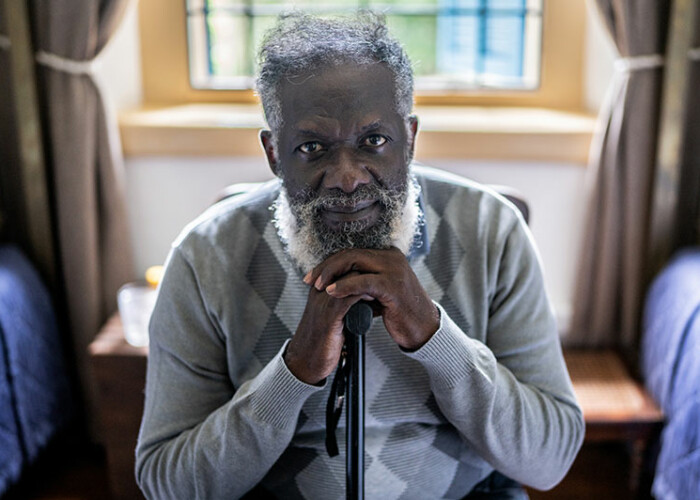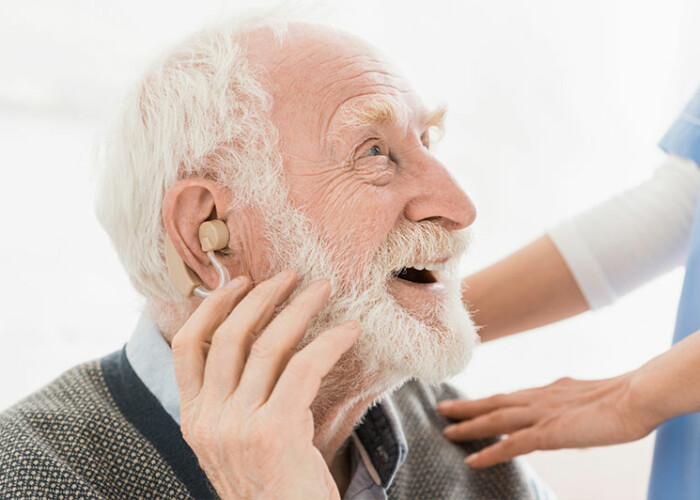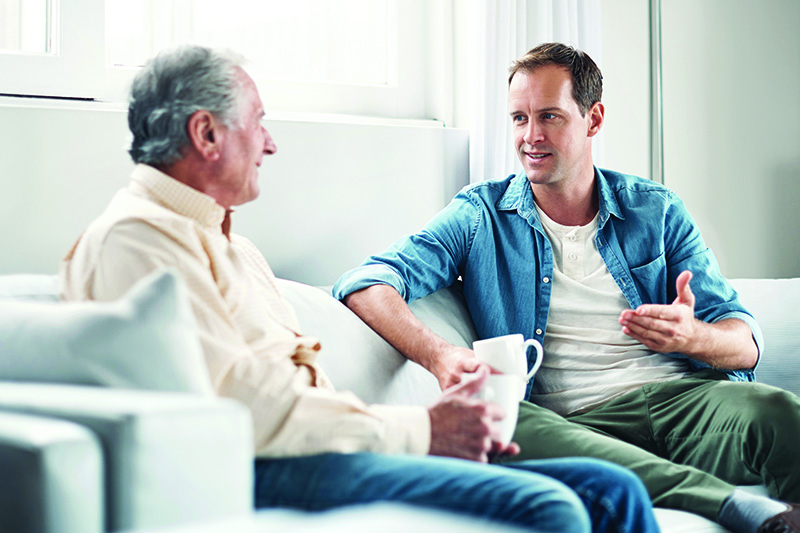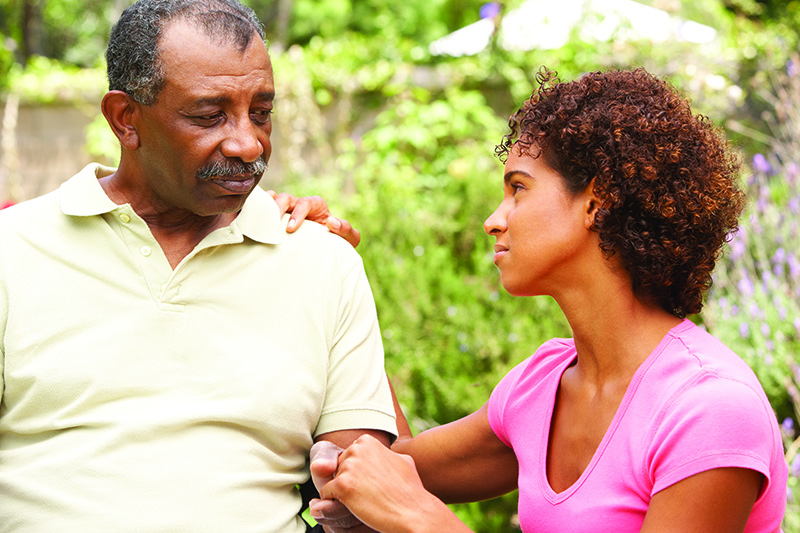Alzheimer’s
Noticing Changes in a Senior’s Eating Behaviors? Here’s Why.
There are a number of reasons that could be causing changes in a senior’s eating behaviors.
Following the indulgence of the holiday season, many of us decide to cut back on consumption of calories. But when an older adult does not want to eat altogether, or is making unbalanced or unhealthy dietary choices, it’s important to look for the reason behind changes in a senior’s eating behaviors. This is a first and crucial step in promoting healthier eating habits.
Dysphagia Tips: Using Beverage Thickeners for Swallowing Disorders
These dysphagia tips will help someone you love adapt to beverage thickeners.
Unless you have dysphagia, a swallowing disorder, it is likely you have not given much serious thought to the various textures and consistencies of the liquids in your daily diet. When you are feeling thirsty, nothing hits the spot like an ice-cold glass of water. On a hot summer day, you may crave a cool milkshake. And when you are recuperating from the flu, a warm bowl of soup really hits the spot.
Could Alzheimer’s Disease Be an Autoimmune Condition?
Could Alzheimer’s disease be an autoimmune condition? Find out here!
Finding a cure for Alzheimer’s has become as tangled as the tau threads long thought to be the root cause of the disease. But now, research workers may be drawing one step closer to unraveling the puzzle of Alzheimer’s, by using a different train of thought. New studies are leaning towards the potential of an inflammatory response in the brain, which poses the question: could Alzheimer’s disease be an autoimmune condition?
Get Cooking With These Creative Dementia Care Activities
If there’s one thing that connects us all, it’s food! Think about how many cherished memories have been made through the years that included food at the center of them all: holiday meals, birthday parties, wedding celebrations. Even ordinary days include routines that become ingrained in us around food, from that first aromatic cup of coffee in the morning to a shared bowl of buttery popcorn with family while watching a show on television.
It really is no surprise that food is not just a necessity for our physical health, but often a powerful way to connect with someone with dementia. Here are several creative dementia care activities you can try to help spark memories while engaging all the senses through food.
Storytelling. Pull out an old cookbook and look through the recipes together to determine if any spark memories. … Read More »
The Health Concerns That Could Be Causing Chronic Negativity in an Older Loved One
If you’re noticing chronic negativity in an older loved one, there may be a medical condition to blame.
We all have good days and bad days, and we are all entitled to a bit of crankiness or negative thinking every now and then. If you are noticing a pattern of chronic negativity in an older loved one, however, it is worthwhile to explore whether a health problem might be the culprit.
Listed below are several reasons for persistent negativity, and how you can help.
Pain. A recent study revealed that participants who were enduring chronic pain reported a rise in negative moods, including fatigue, anger, tension, depression, anxiety, and more. It is essential to discuss any of these mood changes with the physician, as these kinds of mood changes actually impact the effectiveness of pain management treatments.
Urinary tract infections. … Read More »
Improve Memory With These Simple Strategies
Help improve memory for someone you love with dementia with these proven tactics.
Remember memorizing the order of the colors of the rainbow in elementary school? A lot of us were introduced to Roy G. Biv to learn this feat – one of the many mnemonics we learn that, interestingly, often stay with us for a lifetime and help us improve memory.
As we get older, some degree of memory impairment is to be anticipated; and naturally it is even more pronounced when Alzheimer’s disease or another form of dementia is a factor. Researchers are continually aiming to find effective methods to enhance memory and cognitive functioning, and have discovered some interesting findings on “old school” strategies such as mnemonics. Here’s what they have most recently identified:
Mnemonics
Mnemonics provides a link to a memory through a song, … Read More »
Do You Know When and How to Downsize for Seniors with Dementia?
Seniors with dementia can benefit from downsizing.
It’s clear that the family home is just too overwhelming for Mom and Dad to care for. A small home is for sale just around the corner from you that’s ideal: a beautiful flower garden in the front yard, a sunny, cheerful kitchen, and no stairs to navigate. Now it is time to begin the downsizing process. The only problem? Mom has dementia.
Any level of change can be very challenging for a senior with dementia. Leaving the familiarity of home and moving into a brand new one can enhance feelings of anxiety and agitation, but there are strategies to ease the transition.
Take your time. It can be your natural thought to make this process as quick as possible – like ripping off a band-aid. However, a much better approach in … Read More »
How to Be a Partner and Not a Parent as a Spousal Caregiver
We have tips to help you maintain your relationship while being a spousal caregiver.
Healthy, long-term relationships take commitment, sacrifice, and compromise. The happiest relationships are those where both parties selflessly take care of each other. This balance shifts, however, if the person you love experiences a significant health concern. And this shift can have a devastating effect on the dynamics of your relationship if you’re not vigilant, as you find yourself in the role of a spousal caregiver.
It’s natural to want to help your spouse in whatever way you can as their health needs change. However, it’s vital that you ensure you are not sacrificing your romantic connection in the process. Attempting to parent your partner can result in resentment – for both of you. To promote healthy boundaries, keep the following in mind:
• Find … Read More »
What People With Alzheimer’s Want You to Know
Improve communication with someone you love by learning what people with Alzheimer’s want you to know.
If you’ve ever wished you could look a senior with dementia in the eye and understand exactly what they’re thinking, we just might be able to help you with that! Communicating effectively with someone with dementia isn’t easy, especially as the disease progresses. Following are several statements provided by people with Alzheimer’s to give you some insight into what it feels like to live with the disease.
You haven’t lost me. A diagnosis of dementia does impact a person in many ways, but it doesn’t change the essence of who they are. “I love the same people and doing the same things I did before my diagnosis,” explains Dale Rivard. It’s essential to recognize that while memory and cognitive abilities may decline, the … Read More »
The Link Between Hearing Loss and Dementia You Need to Know About
Understanding the link between hearing loss and dementia is crucial to know the steps you can take to reduce the risk of cognitive decline.
Are you finding the need to turn the TV up louder for someone you love? Speaking more loudly? Repeating things the person missed hearing the first time? Hearing loss in older adults is not uncommon. But new scientific studies are pointing to a startling link between hearing loss and dementia.
How Hearing and Cognitive Functioning Are Linked
There are a number of hypotheses scientists are exploring to explain the connection between hearing loss and an increased risk of dementia:
The brain’s memory and thinking ability are affected when it has to work harder to strain to hear and to fill in the gaps when communication is missed.
An older brain shrinks more rapidly because of hearing … Read More »


